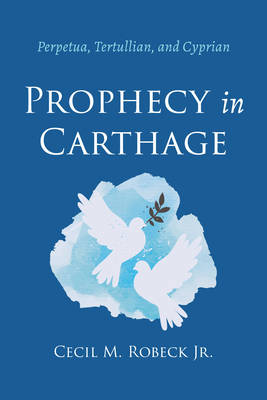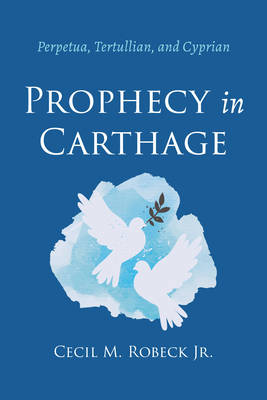
- Afhalen na 1 uur in een winkel met voorraad
- Gratis thuislevering in België vanaf € 30
- Ruim aanbod met 7 miljoen producten
- Afhalen na 1 uur in een winkel met voorraad
- Gratis thuislevering in België vanaf € 30
- Ruim aanbod met 7 miljoen producten
Zoeken
Omschrijving
""Prophecy"" is never easily defined. It has meant different things to different people of the church at different times. For some, it is an ancient and finished event from which we can only learn; for others, it is still an ongoing wonder, occurring daily in varying manifestations and calling for widely divergent responses. Through the writings and legacy of Perpetua, Tertullian, and Cyprian, early Christians of the third century, Cecil Robeck has undertaken a historical examination of the gift of prophecy in the early church. He explores their visions and how those visions served and spoke to the persecuted community of believers who formed the early church. From the perspectives of a laywoman, a bishop, and a theologian, he looks at connections between prophetic phenomena--on the rise in Carthage at that time and in decline elsewhere--and ecclesiastical expectations. Placing emphasis on the prophetic function rather than the prophetic person, Robeck probes the interpretation, application, and effect of their visions on the church. Through that lens, he demonstrates that their visions have meaning beyond the personal and immediate for the prophet--that they can provide guidance, enlightenment, and meaning not only for their world and time, but for ours as well.
Specificaties
Betrokkenen
- Auteur(s):
- Uitgeverij:
Inhoud
- Aantal bladzijden:
- 342
- Taal:
- Engels
Eigenschappen
- Productcode (EAN):
- 9781666741964
- Verschijningsdatum:
- 30/11/2022
- Uitvoering:
- Hardcover
- Formaat:
- Genaaid
- Afmetingen:
- 152 mm x 229 mm
- Gewicht:
- 625 g

Alleen bij Standaard Boekhandel
+ 188 punten op je klantenkaart van Standaard Boekhandel
Beoordelingen
We publiceren alleen reviews die voldoen aan de voorwaarden voor reviews. Bekijk onze voorwaarden voor reviews.











